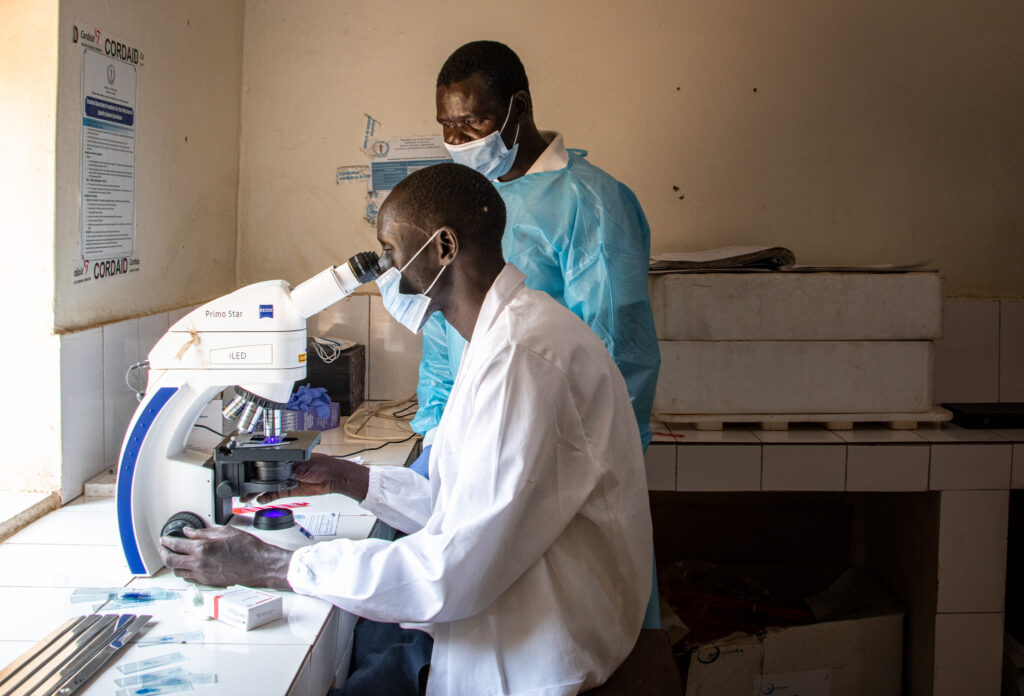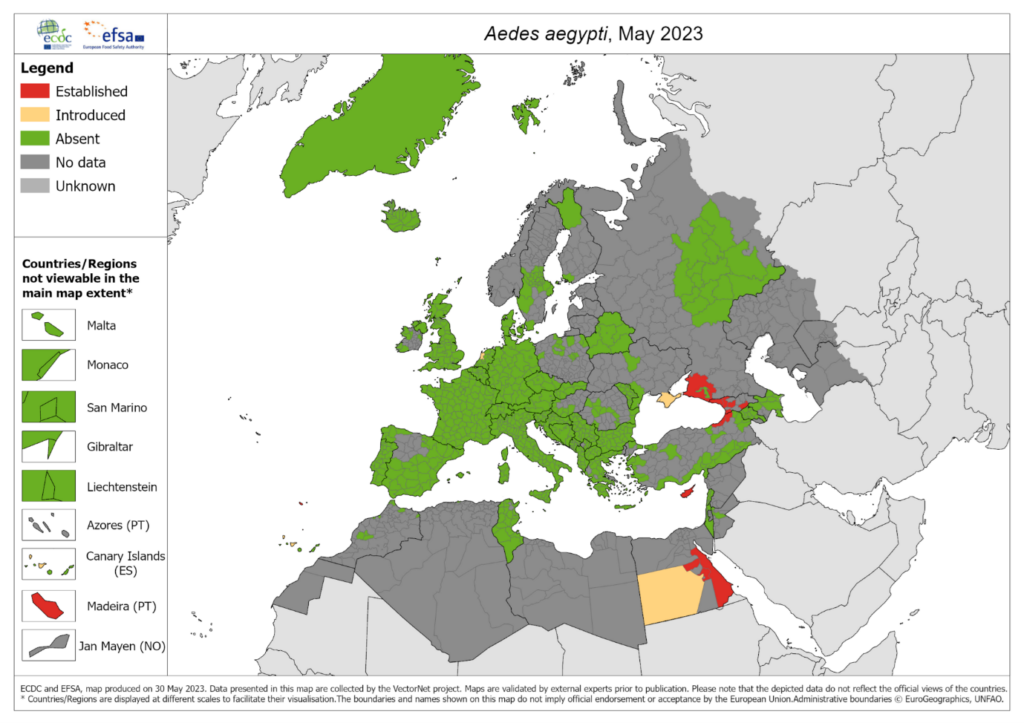There is a significant chance that we will face another global pandemic in the next hundred years, a recent study confirms. Yet, despite an initial strong response to the last pandemic, the Dutch political arena seems to lose interest in global health at a crucial time.

It has only been three years since the World Health Organisation declared COVID-19 a pandemic. Health systems, particularly in low-income countries, are still reeling from the ravage it caused. Not to forget the devastating impact COVID-19 had on human rights protection, deepening poverty, rising inequalities, and entrenching discrimination. It also reversed progress towards advancing health for all, including sexual and reproductive health.
Yet, the Dutch parliament already seems to be putting global health issues on the back burner. “More than eight months after the Dutch government published its Global Health Strategy, parliament failed to debate the policy”, says Rosana Lescrauwaet, Cordaid’s Advocacy Officer. “This lack of prioritisation by parliament is concerning, and even irresponsible considering evidence of rising pandemic risks.”
Initially scheduled for May 31st, the parliamentary debate on the strategy was cancelled. Ensuing strong requests from Dutch civil society, it was rescheduled to October 26th, almost exactly one year after the publication of the strategy. The combination of continuous delays to set the Global Health Strategy in motion, with a shrinking budget for aid, is a source of concern.
“We should not be squeezing aid budgets at a time where contributions to health should be bolstered globally.”
In response to the sweeping impacts of COVID-19, the Dutch government initially spearheaded the development of a Global Health Strategy. However, since then, other priorities have arisen. Deteriorating global macroeconomic conditions, including pressures directly related to the war in Ukraine, are taking up the bulk of public and political attention. While addressing these other priorities is essential, it cannot be done at the expense of global health.
The multi-billion reallocation from structural development cooperation to in-donor asylum costs is significantly shrinking aid spending for health from the Netherlands and beyond. That means the gap between the needs and aid spending for health, particularly in low-income countries, is likely to increase further.
“We should not be squeezing aid budgets at a time where contributions to health should be bolstered globally. Not only do we need to be better prepared against future pandemics, we must also continue progressing towards universal health coverage”, says Rosana.
Does global health still matter?
To echo the first few paragraphs of the Dutch Global Health Strategy, we must “look ahead strategically and respond proactively to new global developments and insights, in order to anticipate and respond to opportunities and risks as effectively and collectively as possible”. Let us first look at the evidence that policymaking should anticipate and be responding to.
As we have already mentioned, there is a significant chance to experience another COVID-19-like pandemic in the next hundred years. This is a risk that is set to increase exponentially due to climate change. Indeed, the Proceedings of the National Academy of Sciences (PNAS), one of the world’s most cited scientific journals, estimates that “the yearly probability of occurrence of extreme epidemics can increase up to threefold in the coming decades” due to environmental changes.
For most high-income donor countries, like the Netherlands, the health impacts of climate change are still relatively mild. Therefore the need to invest in health systems is not treated as urgent.
“Due to the lethargic attitude of Parliament, the Netherlands has lost a full year of preparing properly for the next pandemic.”
That reality is, unfortunately, not too far ahead for the Netherlands. Last week only (22nd June 2023), the European Centre for Disease Prevention and Control (ECDC) warned that certain types of mosquitos are being found in Northern and Western Europe. In the Netherlands, the mosquito species known to transmit chikungunya and dengue viruses are already at home in the warming Dutch climate.
Let us not forget that last summer, Europe saw more cases of mosquito-borne diseases like dengue in 2022 than the total number of cases in the previous decade.

A plea for innovation and cooperation
In several countries where Cordaid operates, the devastating impacts of climate change on health and disease outbreaks are already observable. Global health is an avenue to foster hope through innovation and cooperation. Investing in solutions in places already facing the grave impacts of climate change on health can lead to a better future for all. Learning to control epidemics such as malaria is a plus for anyone on Earth. That is, only if the world’s wealthiest governments, like the Netherlands, ramp up their global health policymaking.
Cordaid is confident that, with robust policymaking and sustainable spending towards global health, the worst scenarios can still be avoided.
Democratic responsibility
Now, looking at Dutch public opinion, the majority of the Dutch (60%) believe that the Netherlands was not prepared well enough to face a pandemic. This is one of the results of a survey with a representative sample of 700 respondents on pandemic preparedness that Cordaid commissioned in 2022. And looking at the data on pandemic risks, we should be seeing a lot more urgency than we do from people with political influence. No one wants to be faced with the same challenges that we experienced only three years ago.
When parliament turns its back to global health issues, we are faced with a democratic conundrum. Everything points to the need to step up our contributions to global health.
The Global Health Strategy is already a strong piece of integral policymaking in which for the first time the Ministry of Foreign Trade and Development Cooperation and the Ministry of Health have combined forces. It contains important elements to strengthen global resilience to health threats. It now remains to be seen if the Netherlands will be capable to turn words into deeds. That depends on the willingness of the political arena to take this piece of policymaking seriously.
“Implementation of the Dutch Global Health Strategy can only truly begin when Parliament endorses it and gives it full political and financial backing”, concludes Rosana, “In that sense, due to the lethargic attitude of Parliament, the Netherlands has lost a full year of preparing properly for the next pandemic.”
Written by Adriana Parejo Pagador, Communication Officer for Global Health Global Access at Cordaid